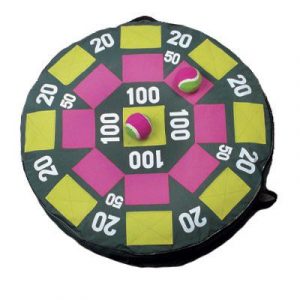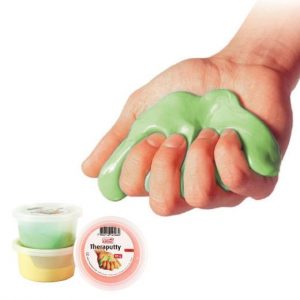An individual with Dementia can go through similar cognitive stages as a growing child. There have been many studies over the years looking into the impact of toys on people with Dementia.
Bruno Bettelheim is an American psychologist who has spent years studying child development. Much of his work has emphasised the importance of playing with toys for children. His studies concluded that children may not be aware of the importance of playing, however, will benefit greatly when a toy is provided for them. Interestingly, the need to participate in activities and games to keep the brain active also applies to adults, including people affected by Dementia. The activity, stimulation and a sense of accomplishment can be beneficial and therapeutic for anyone.
In addition to these recent studies, games and toys have also been shown to defeat restlessness in those with Dementia and help to keep the brain active. One study reported in the American Journal of Alzheimer’s Disease and Other Dementia found that playing board games and solving problems provides mental stimulation that is highly therapeutic for people with cognitive disorders. The games were proven to provide a cognitive stimulation that is necessary to optimize quality of life. This is true for everyone, including those who have Dementia. Seniors with Dementia often show anxiety or agitation through fidgety hands. Examples of this include pulling or rubbing clothes or bedding, rubbing hands together, twisting fingers and wriggling hands. It is therefore not inappropriate or unreasonable to give toys to people with Dementia but can be helpful in giving them an activity suitable for their cognitive state to keep their mind active.
Providing the correct toys to those with Dementia can, therefore, be cognitively stimulating and improve quality of life. Toys and games are colourful, interesting and can make an individual’s day feel more productive and exciting. When a person with Dementia finds that their mental abilities are declining, they often feel vulnerable and helpless. It is important that Care Home staff retain their feelings of self-worth through providing them with activities and games.

Choosing toys for people with Dementia
In meaningful, purposeful and enjoyable activities and games, individuals will use a combination of skills including physical, social, emotional, cognition and sensory skills. A board game with a colourful playing surface and objects that can be handled is better than a game that does not contain these features; the more sensory stimulation the better. Seniors with Dementia often have restless hands and will take a liking to the stimulation of activities. Gentle repetitive actions or even simply holding something can help to keep their hands meaningfully occupied. Activities and games can improve the ability to communicate which offers a chance to talk and share stories. Social interaction and participation can help to alleviate depression and isolation.
When providing games and toys to those in your Care Home, focus on what each individual can do, rather than what they can’t. Some may require assistance for certain things, whereas some people can be left alone.
The main skills your games should focus on are the following:
-Fine Motor and Dexterity Skills
-Hand-eye co-ordination
-Concentration
-Stress-relief
-Social skills
-Tactile awareness
Many of the activities we sell for individuals with Dementia stimulate fond memories and familiar skills. They all are great icebreakers for social activity and ideal for Activity Coordinators in care homes, residential homes, and nursing homes. For therapists, carers, and families, these activities are just as beneficial.
Here are some of the games we offer for those with Dementia that may be beneficial to your Care Home:
Dart Ball
Skills that are focussed on:
Motor skills, hand/eye coordination, visual perception
How to play:
Throw the balls at the brightly coloured target and count your score
Theraputty
Skills that are focussed on:
Maintains flexibility, hand-eye coordination, stress relief
Theraputty provides gentle hand exercise and coordination.
It can be difficult to watch an individual with Dementia regress into a childlike state, however, this is often what will happen. Although providing adults with toys and games may seem degrading, you should see it as something dignifying in that it provides such a rewarding experience.
Related:
Read our blog for guidance on how you can encourage active living for people with Dementia.

